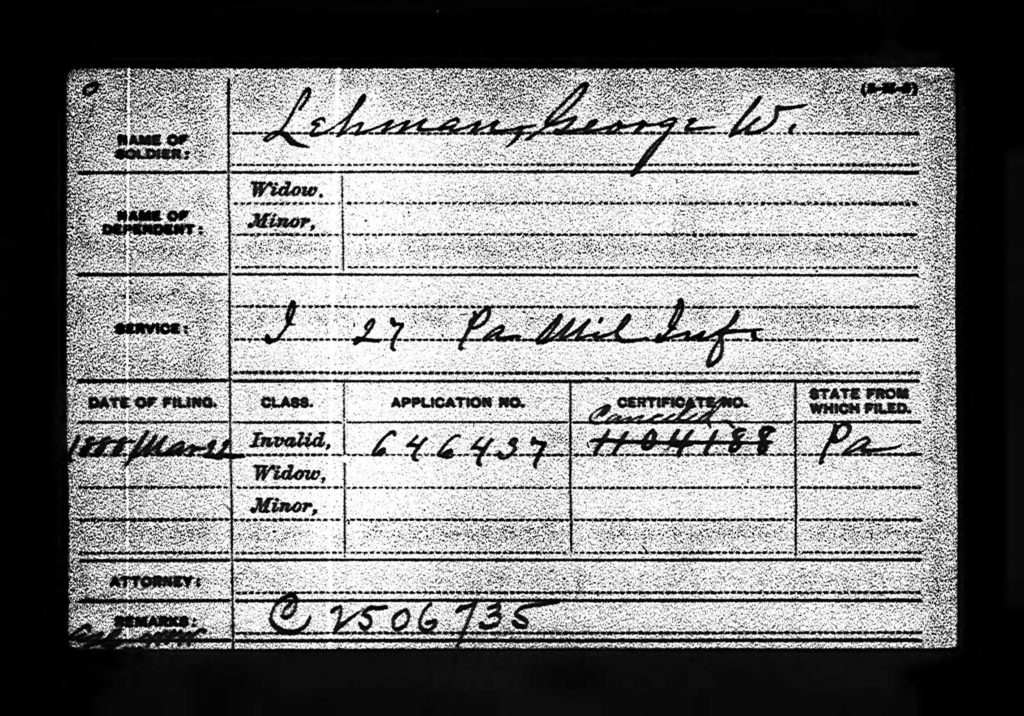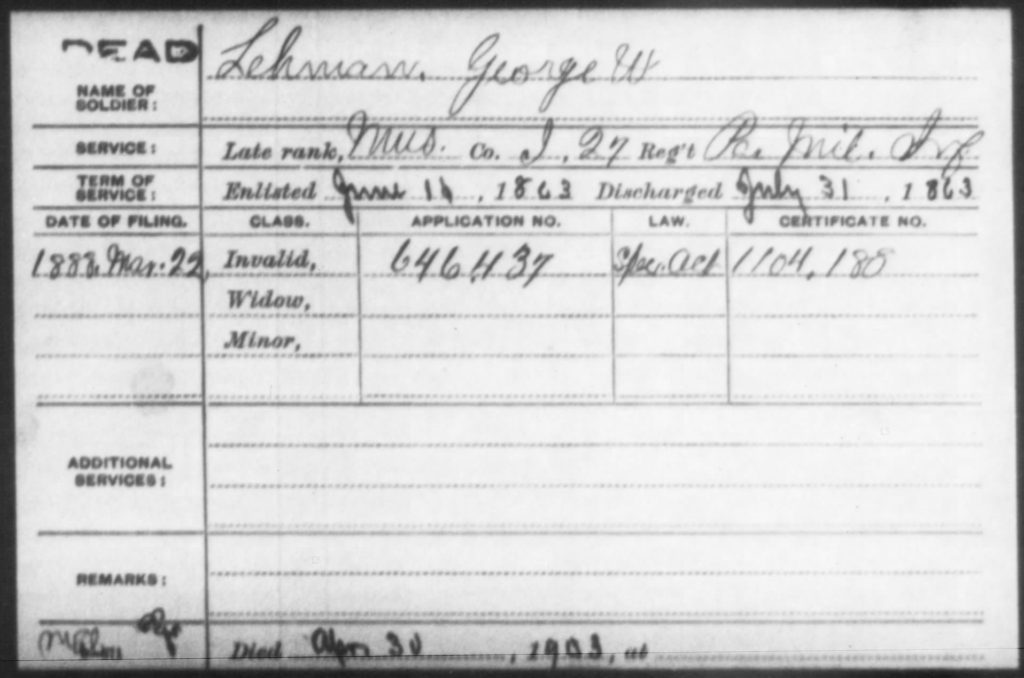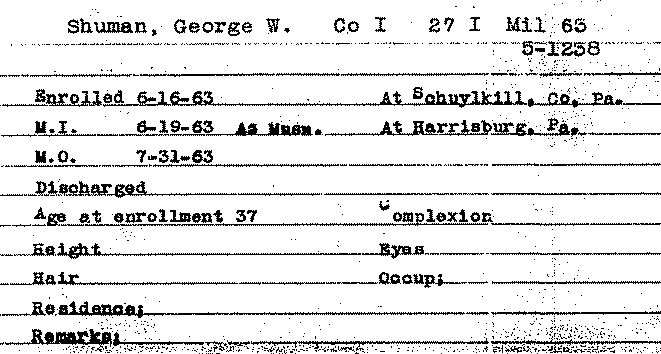George W. Lehman – Why Was His Pension Canceled?
Posted By Norman Gasbarro on September 25, 2019
On 12 March 1888, George W. Lehman applied for a pension from Pennsylvania based on his service in the 27th Pennsylvania Infantry (Militia), Company I. At some point, he was awarded a pension based on the certificate number on the Pension Index Card shown above from Ancestry.com. However, someone later wrote “canceled” over the certificate number.
On the companion card from Fold3, shown above, the law under which George W. Lehman applied for a pension was given as “Spec. Act.” There is no indication on the Fold3 card that the pension was canceled.
In 1890, George W. Lehman, then living in Williamstown, Dauphin County, Pennsylvania, reported to the census that he had served in the 27th Pennsylvania Infantry, Company I, as a musician, for one month and 15 days. His dates of service were given as 16 June 1863 to 31 July 1863. This regiment and company, if correct, was part of the Pennsylvania Militia that was called to meet the emergency of 1863. If this was the only military service by George W. Lehman, than he would have not been eligible for a pension under the laws in effect at the time he applied. Note: Click on image to enlarge.
In examining the roster of the 27th Pennsylvania Infantry (Emergency of 1863), no George W. Lehman is found. However, as shown by the screen capture from the Steve Maczuga Data Base from Pennsylvania State University, there was a George W. Shuman who served as a Musician in that regiment and company, for the approximate dates given by Lehman to the 1890 census.
The Pennsylvania Veterans’ File Card, shown above from the Pennsylvania Archives, indicates that at Schuylkill County, Pennsylvania on 16 June 1863, George W. Shuman enrolled as a musician in this militia regiment and company, and served until 31 July 1863, the exact dates given by George W. Lehman in the 1890 census. Furthermore, the age of the soldier at this time was 37, which matches the age of George W. Shuman who was born about November 1826 in Schuylkill County.
So, why was the soldier incorrectly recorded as “Shuman” and why was a pension given to “Lehman” but then later withdrawn or canceled? Answers to this question can probably be found in the pension application file available from the National Archives. This file was not consulted for this blog post because of the cost of obtaining it. Perhaps a blog reader has obtained the pension and can shed some light on this matter.
The death of George Washington Lehman occurred on 30 April 1903, as previously noted from the Pension Index Card. On 8 May 1903, the Lykens Standard, published his obituary:
GEORGE WASHINGTON LEHMAN
A well-known former resident of Williamstown, died at Gloucester, New Jersey, on Thursday morning of last week, of general debility, incident to old age, having attained the high mark of 76 years. The funeral was held last Sunday from his home in Gloucester.
Mr. Lehman was born in Schuylkill County, and was the oldest of a family of nine children, four sisters and five brothers. Abel Lehman, the able and faithful Williamstown correspondent of the Standard, the youngest brother, and Kate, Mrs. Samuel Whetstone of New New Mexico, the youngest of the family, and John Lehman of Iowa, are the only three surviving.
Mr. Lehman lived at Donaldson, where he married Miss Catharine Goldman. She died of cancer 36 years ago and left his six children. He was married the second time to Miss Sarah Dinger of Pine Valley, with whom he had 10 children. The widow and 11 children survive.
From Donaldson the family moved to Bear Valley, where they conducted a boarding house. Thence they moved to Williamstown, where they resided 30 years. Last fall, a year ago, they moved to Gloucester. In his younger days, Mr. Lehman taught school in Schuylkill County. He had great musical talent and was one of the old-time popular singing school teachers. For years he was the chorister of the Williamstown Lutheran Congregation. At one time he was borough supervisor. He spent most of his years at coal mining.
Mr. Lehman belonged to the Grand Army Post [G.A.R.], and was one of the first soldiers of our Civil War, belonging to the three months’ enlistment. He was reared in the Lutheran faith and was buried with masonic honors.
On account of bodily infirmity, our friend and brother “Abe” was prevented from attending the funeral.
___________________________________________
News clipping from Newspapers.com.
 ;
;








Comments